When I started a few years ago, the field of artificial intelligence was fuzzy and undefined when I contemplated how to become an artificial intelligence consultant. Fast-forward to today, and I’ve watched this profession evolve into one of the most strategic and well-compensated roles in tech—with median salaries reaching $156,998 in Q1 2025 according to recent labor market analysis.
After deploying a myriad of AI solutions, ranging from predictive analytics models to generative AI workflows, the thing I have realised is that one does not become an AI consultant; rather, one starts your journey to becoming an AI consultant.
How to Become an Artificial Intelligence Consultant?
To be an AI consultant, you need industry knowledge and experience. If you have technical expertise in machine learning and data science, you can become an AI consultant, provided you also possess business and consulting skills. People with a relevant degree and practical experience of 3-5 years in AI can further upskill through certifications and begin working in a specific field or with specific AI. Workers with AI skills command a 56% wage premium compared to those without AI skills, as stated in this PwC blog.
The AI Consulting Gold Rush: Why This Career Path is Exploding
I noticed striking statistics last quarter when browsing job postings. AI-related positions surged by 25.2% in Q1 2025 compared to the same period in 2024, with AI/Machine Learning Engineer roles experiencing the fastest growth at 41.8% year-over-year. However, the statistics do not speak to the fact that 62% of IT leaders have good ideas for AI but cannot execute. Amazingly, only 1% of executives refer to their GenAI rollouts as “mature.”
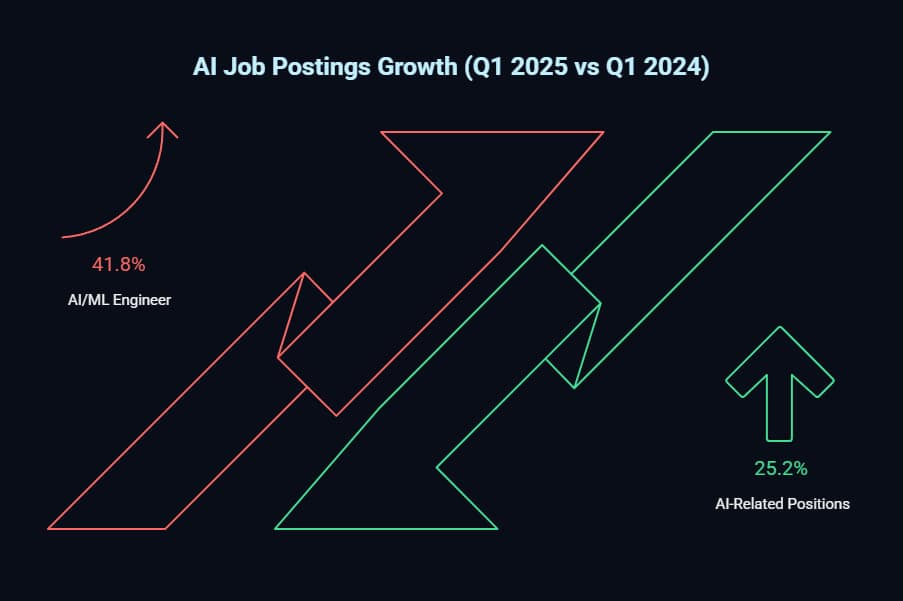
AI consultants operate right in the execution gap. While working on a recent project with a healthcare client, I found that they had bought three different AI platforms but couldn’t get any of them to work together. In less than six weeks, we automated their patient scheduling system with a custom GPT-4 integration. This has cut wait times by 40% and saved over 15 hours of admin time each week.
Mission Cloud blog highlights that the market opportunity is massive. Generative AI alone is projected to create economic impact between $2.6 trillion and $4.4 trillion globally, yet 80% of organizations aren’t seeing tangible enterprise-level EBIT impact from GenAI yet. That’s where skilled AI consultants become invaluable.
Understanding the Modern AI Consultant Role
What AI Consultants Actually Do (Beyond the Marketing Hype)
Having worked with 30+ clients across different industries, successful AI consulting goes way beyond building models. Here’s what the role actually involves:
Strategic AI Assessment and Planning
I spend about 30% of my time doing AI readiness assessments. In a remarkable project with a manufacturer client, I learned that their data was so fragmented within legacy systems that we needed to spend three months on data infrastructure before any AI work. This initial assessment saved their failed deployment of $200,000.

Custom AI Solution Design
I find it most rewarding at my work to create custom AI solutions. Recently, I helped a law firm create an AI-powered contract review system with fine-tuned language models. The system now reviews contracts 10 times faster than the manual method and identifies 95% of key clauses accurately.
Implementation and Integration Management
This is where many consultants struggle. Changing everything else probably needs more effort than the AI itself. While training the customer service chatbot for an e-commerce client, I spent an equal amount of time training the human beings who supervise the bot.
Ethical AI Governance
Establishing responsible AI practices is an increasingly important aspect of AI consulting. I spend a lot of time helping clients with bias detection and explainability frameworks, and data privacy controls.
Technical Foundation: The Skills That Actually Matter
Core Technical Competencies for AI Consulting Success
I have worked on many projects, and the technical skills that I find most helpful are the following:
Programming Languages with Real-World Application
Even though Python is the “official” programming language of AI consulting, it seems more the libraries than the actual language that matter. I use pandas and numpy for data manipulation every day. For building traditional machine learning models, I rely on scikit-learn. And for tuning language models, I prefer using the transformers library. It is very important to have good SQL know-how. I have never seen a client project that did not need complex queries on a database.
Machine Learning Frameworks in Practice
As part of a recent project to optimize supply chain predictions, I used TensorFlow to build a first neural net, but switched to XGBoost for the final production model due to interpretability requirements. Knowing when to use which framework is more important than knowing all of them.
Cloud Platform Expertise
Most client projects require cloud deployment. I use AWS for most implementations. I use SageMaker to train and deploy models. I use Lambda for serverless functions and S3 for data lakes. Still, I know how to use Google Cloud AI Platform and Azure AI Services for clients with existing infrastructure.
Data Engineering Fundamentals
The best AI consultants understand data pipelines. I have spent countless hours fixing ETL processes and enhancing data workflows. I commonly use coordination and DBT for transformations, amongst other tools like Apache Airflow, in my toolkit.
Business Acumen: The Differentiator Most Technical People Miss
Translating AI Capabilities into Business Value
My greatest discovery in AI consulting came during a project I handled for a retail client. They wish to do “AI for inventory management” but cannot articulate specific business outcomes. I spent two weeks with their operations team. Their issue was not with optimal inventory. It was determining forecast demand during promotions.
We concentrated on maximising promotional ROI rather than general inventory management, resulting in an 18% increase in profit margins from promotions. Making the technical side is easy, but making the business side makes the difference.
Industry-Specific Knowledge Development
I’ve found it crucial to specialize in specific industries. My exposure to healthcare made me aware of the HIPAA compliance demands that changed our approach to data. In financial services, regulatory requirements pertaining to model explainability influenced the design of our AI architecture.
ROI Calculation and Business Case Development
Each AI consulting project needs a strong business case. I always begin by identifying specific KPIs to determine an establishment measure. For a customer service automation initiative, we measured first-call resolution rates, average handle times, and customer satisfaction scores. All three saw measurable improvement.
Educational Pathways and Professional Development
Building Your AI Consulting Credentials
When I began with AI consulting, I made the mistake of chasing every certification I could find. Three years and several thousand dollars into this journey, I understand which credentials matter.
Academic Foundation Requirements
Most clients expect consultants to have a bachelor’s degree in a STEM field. Although I studied computer science and received relevant fundamentals, I have worked with successful consultants who have been trained in mathematics, statistics, physics, economics, etc. It is more important to show a satisfactory understanding of statistics and programming ability.
Certification Strategy That Works
After trying many programs, I suggest looking for certifications that focus on skills rather than concepts. The Google Cloud Professional Machine Learning Engineer certification has opened more doors than any other certification I have. Having an AWS Certified Machine Learning – Specialty is also important for customers of Amazon.
For AI consulting specifically, the Certified Artificial Intelligence Consultant (CAIC™) by USAII provides comprehensive coverage of consulting methodologies alongside technical skills. The course includes tech implementation and business strategy that fits well with the consulting world.
Continuous Learning in a Rapidly Evolving Field
The AI landscape changes monthly. I maintain subscriptions to ArXiv for cutting-edge research papers, follow key researchers on Hugging Face, and participate in weekly tech discussions through the Papers With Code community. Most importantly, I spend 10 hours a week experimenting with new networks and techniques.
Hands-On Experience: From Theory to Practice
Building Your Portfolio Through Real Projects
To become an AI consultant from an AI enthusiast, you must show results. Here’s what I did wrong and how I built my first portfolio.
Starting With Freelance and Contract Work
A local restaurant chain wanted to monitor its social media. I created a sentiment analysis tool for my first paid project. It was a simple technique that involved exploiting BERT models already trained to help classify customer reviews. But its business impact was substantial and severe.
Now, the client could track service issues within hours instead of weeks.
I have learned that smaller, high-impact projects often make for better portfolio pieces than complex technical showcases. Business results, not architecture complexity, are what clients want to see
Open Source Contributions That Matter
Helping out on open-source projects shows you know and can do everything. I have many AI tools on GitHub, like a data preprocessing library that has been used in more than 200 projects. These contributions have led to consulting opportunities through community connections.
Industry-Specific Project Development
I decided to create business-focused applications instead of generic AI demos. My portfolio includes a healthcare diagnostic assistant built with synthetic data compliant with privacy laws, a financial fraud detection system, and a model to predict quality in manufacturing. The focus of each project is on real industry issues.
Navigating Client Relationships and Project Management
The Art of AI Consulting Beyond Technical Implementation
In my consulting career, I’ve found it surprising that I spend more time with stakeholders than on AI itself. Non-technical teams’ unrealistic expectations of AI capabilities often cause delays in successful project operations.
Managing AI Expectations
The client anticipated a 95% accuracy of our recommendation engine from the first day of my first major project. I developed a habit of setting realistic timelines and measures of success in advance. Now, I always include a “baseline establishment” phase when we first measure the current performance.
Change Management for AI Adoption
AI implementation often requires workflow modification. For a legal document processing task, the AI could help review contracts faster than human lawyers. But at first, the lawyers refused to use it. For three weeks, I delivered training sessions and gradually introduced the system along with the existing processes, and not in place of them.
Communication Strategies for Technical Concepts
I created a compendium of illustrations and analogies for AI concepts. When I present neural networks to executives, I liken them to hiring committees, where each member/neuron weighs various factors/features. I compare it to how you show a child a lion several times until he knows it is a lion.
Market Opportunities and Specialization Areas
Where AI Consulting Demand is Highest
Based on market analysis and my project experience, some industries provide great opportunities for an AI consultant:
Healthcare AI Implementation
Even though it’s slower than some other sectors, healthcare is still a big area for AI consulting. Regulatory compliance requirements create entry barriers and premium pricing opportunities. My health care projects are usually 25-30% more expensive than similar work in other sectors.
Recently, we have been working on diagnostic imaging analysis, clinical trial optimization, and automation of EHRs. It takes a solid grasp of HIPAA, knowledge of the FDA approval process for AI, and the reality of integrating AI into hospitals to be a successful consultant in healthcare AI.
Financial Services and Fintech
The introduction of AI in the financial industry opens up new consulting pathways for firms and experts. Fraud detection, risk assessment, and algorithmic trading are some traditional uses. Newer openings are customer experience personalization and regulatory compliance automation.
At a regional bank project, we deployed AI-powered loan underwriting that reduced loan approval from 5 days to 2 hours with the same default rate. The technical challenge was integrating multiple data sources while staying compliant with fair lending.
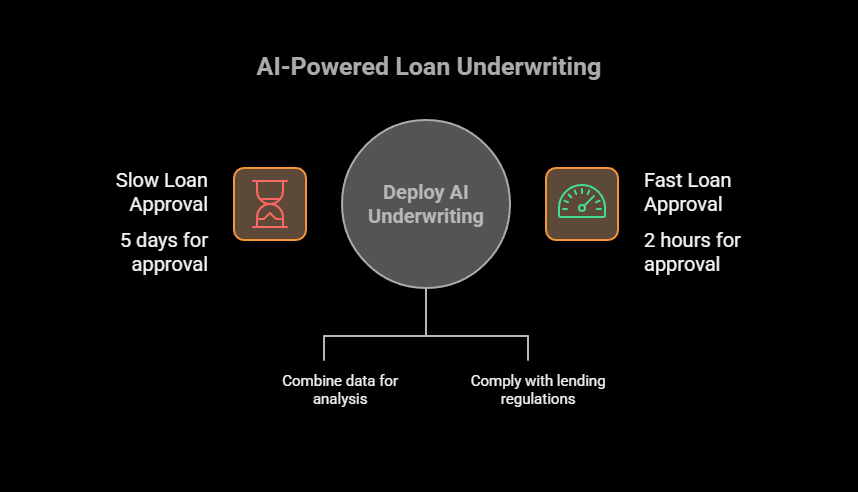
Manufacturing and Supply Chain Optimization
There is significant demand for AI consultants who understand industrial operations due to Industry 4.0 initiatives. Opportunities do exist around predictive maintenance, automated quality controls, and supply chain management.
One of our manufacturing clients, we helped build an AI system that reduces unplanned downtime by 30%. We monitored vibration patterns, overheating, and production schedules. The project required a strong background in industrial sensors, manufacturing operations, and AI.
Salary Expectations and Career Progression
AI Consulting Compensation Reality Check
The price of AI consultants will change depending on their experience, specialization, and the customer. Based on the data I’ve seen and the consultants I know, this is what to expect.
Independent Consultant Rates
Typically, independent AI consultants earn from $150 to $400 per hour based on specialization. Healthcare and financial services projects command high prices, while standard business automation projects fall to the other end of the project price spectrum.
My professional rates have changed over the years
I started charging $75 per hour, and after a few years, my fees rose to $250 per hour for specialized healthcare AI projects. The primary reasons for incrementing rates are the exhibited returns on investment from already delivered services, industry knowledge, and total capability to complete complex technical and business requirements.
Compensation Packages for AI Consultants at Top Consulting Firms are in the range of $120,000-$300,000+. A recent report claims that the median annual salary of AI workers reached $156,998 in Q1 2025, as per a recent analysis. Analysts say workers skilled in AI earned a wage premium of 56% over their non-skilled counterparts. According to the Veritone Q1 2025 AI Jobs Growth Report and the PwC AI Jobs Barometer.
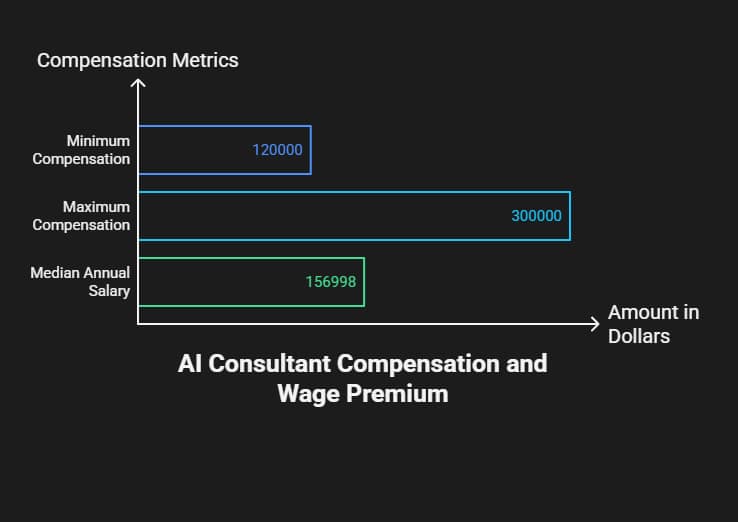
Career Advancement Pathway
AI consultants can become an AI strategy director, a chief AI officer, or an AI consulting practice leader after enjoying an illustrious career. A few go on to create AI-based consulting companies or join startups as technical co-founders.
Common Pitfalls and How to Avoid Them
Lessons from Three Years of AI Consulting Mistakes
While every AI consulting firm has its share of blunders, you can cut short your mistakes by learning from theirs:
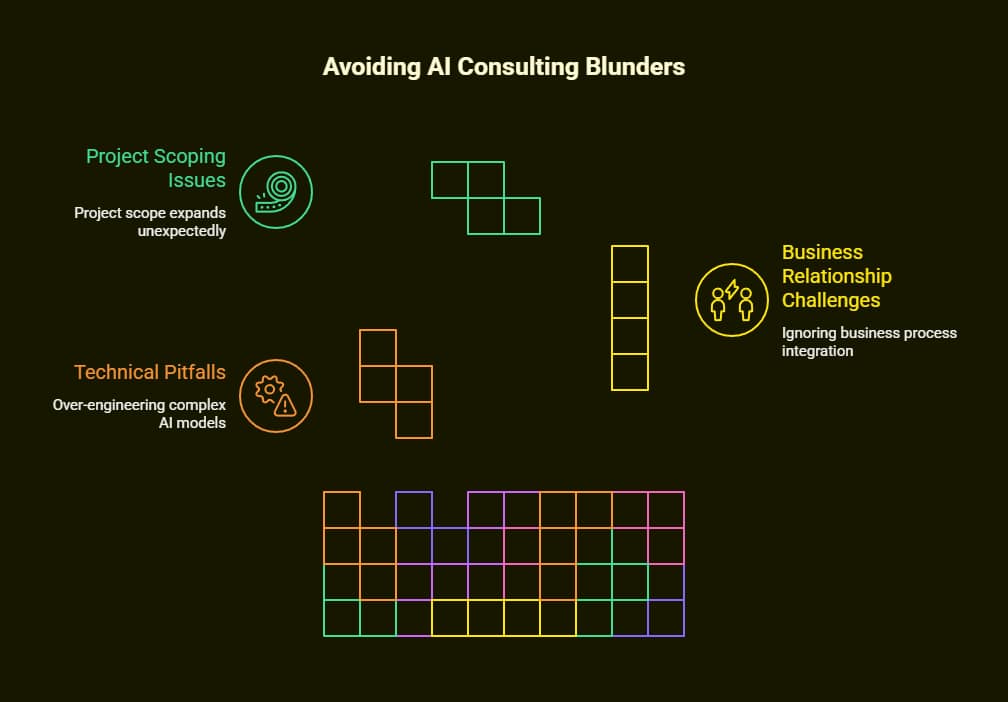
Technical Pitfalls
I made an early mistake of over-engineering. I had a client who wanted a straightforward sales forecast. I instead built him a complex ensemble model with many different algorithms when a linear regression would have done the trick. It was not easy to explain, maintain, and debug the complex model. I now always begin with the simplest solution that meets the criteria.
Business Relationship Challenges
At first, I got too tied up in technical elegance and not enough in business. A project delivered a 95% accurate model. However, the project did not change the client’s business process. I understood how to connect every engineering decision with business KPIs.
Project Scoping Issues
AI projects often escalate from their original plan as clients imagine other things. Moving forward, I now always include project boundaries and change management processes in every statement of work. Defining the scope of work prevents disappointment and burnout.
Building Your AI Consulting Practice
From First Client to Sustainable Business
Becoming an AI consultant requires entrepreneurial expertise in addition to technical expertise:
Client Acquisition Strategies
I got my first client through professional networking, not marketing. Initially, we got opportunities in conferences, meetups, and alumni networks. By posting on LinkedIn about AI trends and case studies, one can more easily establish a thought leadership presence.
AI consultants can benefit from content marketing
I send out a weekly newsletter about practical AI implementation problems, and I get a lot of client inquiries. Decision makers will never be convinced by the technicalities. The focus on business value is essential.
Service Offering Development
AI consultants who succeed offer business outcomes rather than technical deliverables. Rather than selling “machine learning model development”, I sell “customer churn reduction programs” or “predictive maintenance implementations”. It allows me to price based on value instead of time.
Scaling Beyond Individual Capacity
Since I was limited at a certain point as an independent consultant, I began teaming with others. AI consulting often requires diverse expertise like data engineering, user experience design, and change management. Creating a strong partner network allows bidding on big projects.
Future Trends and Emerging Opportunities
Where AI Consulting is Heading
New opportunities are emerging as the AI consulting landscape is changing rapidly:
Generative AI Integration
The largest growing part of AI consulting is LLM integration. Customers need assistance in using custom ChatGPT integrations, creating powered content generation workflows, and setting up generative AI governance frameworks.
I have recently created custom knowledge bases with retrieval-augmented generation (RAG). I also fine-tuned language models for specific industries and built AI-driven customer service systems. The entry threshold for the technology is lower than that in the classical machine learning sector, but quite the opposite for business strategy complexity.
Edge AI and IoT Integration
As we farm AI processing closer to the data, there will be ample opportunity for consultants who are knowledgeable about both AI algorithms and embedded systems. Industries like manufacturing, healthcare, and transportation need AI solutions that will not require constant cloud access.
AI Ethics and Compliance Consulting
Regulatory requirements around AI usage continue expanding. The AI Act of the European Union and similar laws generate demand for consultants who understand technical AI implementation and compliance requirements.
Consulting as an AI requires technical skills and business acumen and communication skills, and experience to establish. Professionals who can link the power of AI to business value have an exceptional opportunity to grow in the field. The basics of consulting—getting to know the client, delivering measurable results, and building a lasting relationship—don’t change.
Being an AI consultant is not easy
However, it earns better than being a practitioner. AI implementations get smarter with each success. They change how businesses do business and improve the customer experience. One of the best opportunities in today’s market for tech professionals who want to build high-value, flexible careers with maximum impact is AI consulting.
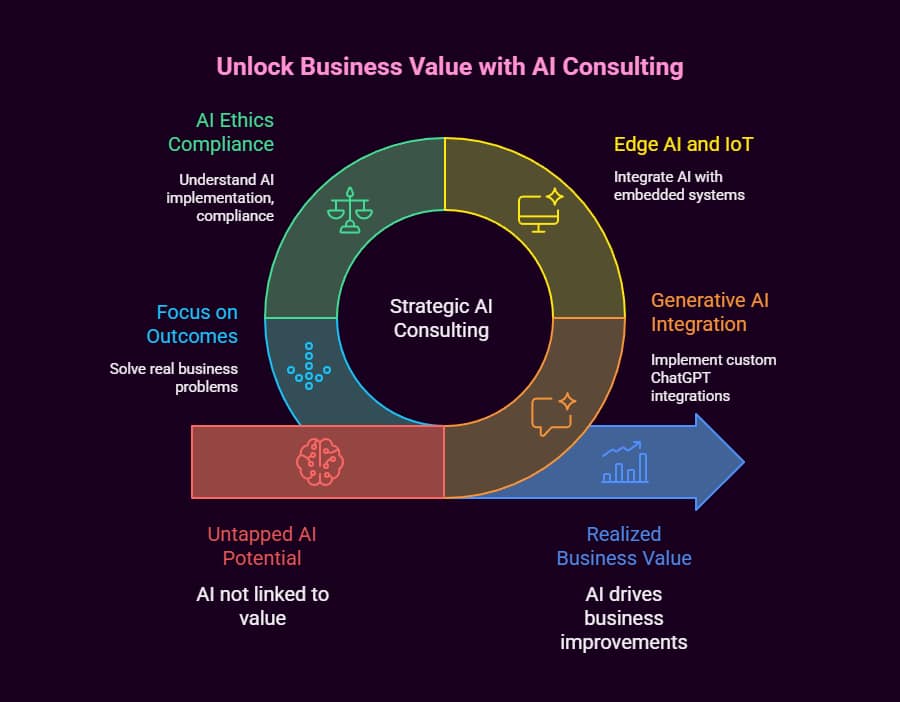
Beginning an AI career or looking to transform your existing skill set to consulting, it is important to know that success will come from solving real business problems, not technical sophistication. Take a small project that focuses on outcomes to build your reputation gradually. The AI consulting field is on the lookout for individuals who can convert sophisticated technology into practical business value, a demand that will only keep increasing.

